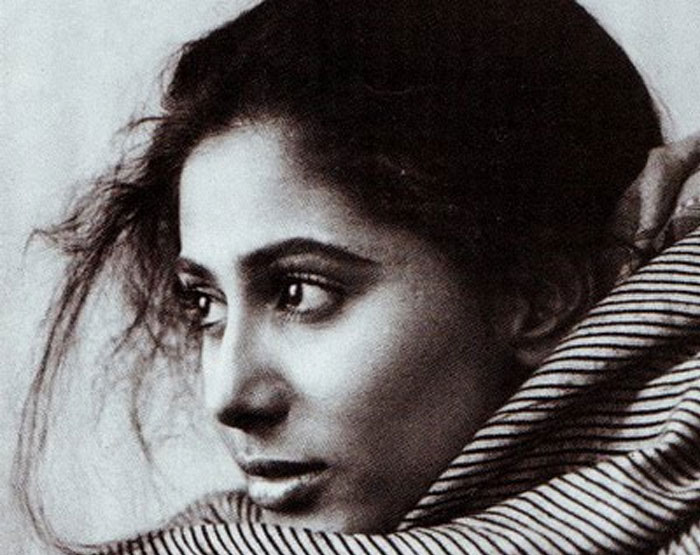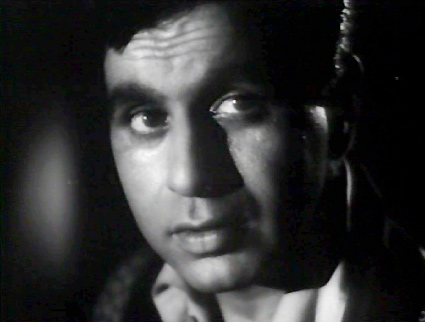
Pandit Ravi Shankar passed away today. Rajinikanth turned 62. Dilip Kumar turned 90 yesterday. Smita Patil passed away almost 26 years ago on December 13. Births, deaths. Years counted, measured, emptied out. filled up. This whole idea of time and that somehow it should be accounted for in terms of achievements, milestones, awards, body of work. But is that all a human life is worth? Or is there more? Something that cannot be counted and touched and quantified? What do we remember after all of a person who leaves this world forever? Is it this generic, collective memory of their public persona or something more? Some personal connection we made with them, their work, without even their awareness?
**
Ravi Shankar for me was the record collection of one of my late uncles who was an accomplished sitarist and passed on the gift to his daughter as well and had a grandson named after the raga Yaman. Pandit ji to me, is also the music of Satyajit Ray’s Pather Panchali, of Hrishikesh Mukherjee’s Anuradha, the soul of Des Raag that Doordarshan would play again and again as a filler. He was also his impetuous love stories one read about. His first and last appearance at the Woodstock festival and his presence at that seminal moment when World Music opened its infant gaze and looked at us for the first time. This was a man whose sitar travelled with him on the airplane seat next to him. The man who once famously said that he was no longer an instrumentalist but the instrument, the music itself. And so he is gone, leaving a little bit of himself in all of us.
**
And alongside this loss, is the celebration of one Shivaji Rao Gaikwad’s life who in this age of unforgiving perfectionism, cocks a snook at it, transcends it with something as basic as humanity and an indescribable connection of goodwill and warmth with his audience. How wonderful that someone in a very unreal business has managed to stay this real and has defied every attempt to logically explain his success. And that is what real magic is all about, beyond PR drums and carefully crafted public personas.

Smita Patil? My first memory of her is as a badly dressed queen or princess in Shyam Benegal’s Charandas Chor and then ofcourse she emerged as the uncompromisingly strong face of alternate cinema. Those high cheek bones, that square gaze, that jaw line, that sensuous and yet strikingly dignified presence was a counterpoint to anything that Indian cinema had seen before. This woman was not meant to be an afterthought, a coquette batting her eye lids, a creation of the male gaze, a decorative aside. She was the hero no matter what role you gave her, be it the idealistic and disenchanted wife of Subah, the fiery widow of Waaris, the well-spoken love interest in Shakti, the defiant rebel of Mirch Masala, the restless spirit of Bhumika, the unspoken longing of Manthan, the inviolable victim of Chakra and so on and on.
**
Today when female actors are battling over item songs, read their Hindi dialogues in English, are happy to be the appendages of the 100 crore big boy’s club, here was an actor who never cared about being a conventional heroine or to look a certain way but remained true to herself and what was miraculously a cinema capacious and intelligent enough to accommodate her uniqueness. She left behind this faint fragrance of her unalterable gentle strength that even the machinery of Hindi cinema could not grind into a powder.

And Dilip Kumar? He is many things to many people. He is to me and always will be, a part of family lore, my father’s adored screen idol and not in a mindless way but in a way a connoisseur marvels at an unsurpassable work of art. The story goes that in order to convince my mother of his hero’s superior acting chops, my father made her see Gora aur Kala (Starring Rajendra Kumar) and Ram Aur Shyam back to back. No one. he believed, ad libbed (who but Dilip saab could say, “Na jaane kab se aaiyen, baayen, shaayen bake ja rahi ho!”)or died on screen like Dilip Kumar.
**
And so many years after my father passed away, I heard that Dilip Kumar was in town and staying at a five-star hotel. I was a rookie journalist and somehow managed to speak to him over the phone. I asked for an interview and he being the gentleman that he is, refused in an inimitable way, “Bete, hum to gaadi leke kal ghar chale jayenge..milne ka waqt nahin hai.” I hung up after thanking him and had tears in my eyes. Certain that my father would have liked me to speak with him. And so he is many memories rolled into one. The laugh riot of Azaad. The bandit of Gunga Jamuna. The Leader. The Mazdoor. The Godfather of Vidhata. The interview that did not happen. A part of not just my childhood. But of many. And so he will be always.
**
Poet Shahryar died quietly and without fanfare this year and few people remember that he was the man behind two sterling ghazals in Muzaffar Ali’s Gaman, or the poetry of Umrao Jaan or the man who after one film refused Yash Chopra because he did not want to sell his craft to Bollywood. No noisy tributes were paid to him but every time we sing seene mein jalan, or zindagi jab bhi teri bazm mein laati hai hamein, Shahryar will come alive. Fame is such a small word to sum up someone’s impact on our life.
**









This is a very well written piece, Ms. Moudgil. I really enjoyed reading it. You should write a book on Indian cinema considering the depth of your knowledge.
I saw Ravi Shankar perform at the Gt Festival Hall in London sometime ago. He
was enjoyed as an artist and respected
as a good human being. A great loss to the Music World.